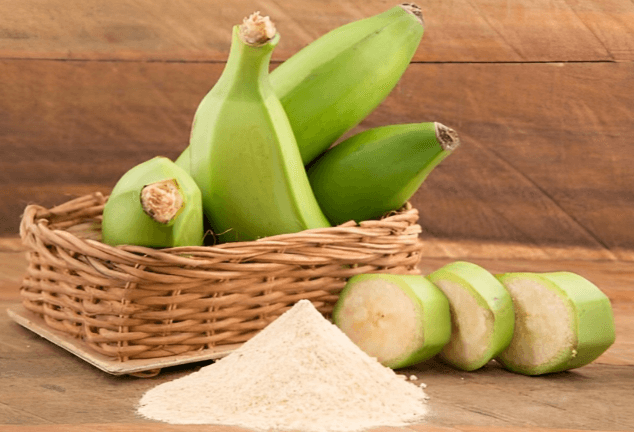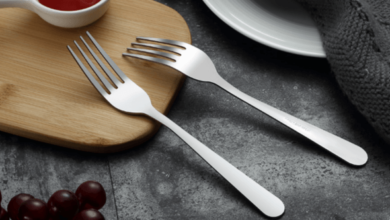wellhealthorganic.com:raw-banana-flour-benefits-and-uses

Introduction to Raw Banana Flour
Raw banana flour is a unique and versatile ingredient that has garnered attention for its nutritional benefits and culinary applications. Made from green bananas that are peeled, dried, and ground into a fine powder, this flour is a superb alternative to traditional wheat flours. Its origin traces back to regions where bananas are a staple food, and it has been used historically as a cheaper, locally sourced alternative to other flours. The recent rise in popularity can be attributed to its health benefits and its appeal to those following gluten-free, paleo, or grain-free diets.
Nutritional Profile of Raw Banana Flour
Banana flour is highly nutritious, offering a rich source of resistant starch, a type of dietary fiber that aids in digestion and has been shown to improve insulin sensitivity. It is lower in calories than traditional wheat flour and contains essential minerals such as potassium, magnesium, and manganese. This profile makes it not only a healthy choice but also a functional one, especially for those looking to manage weight or improve metabolic health.
Health Benefits of Raw Banana Flour
The health benefits of banana flour are vast. Its high fiber content promotes a healthy digestive system and helps maintain regular bowel movements. The resistant starch in banana flour is not fully broken down and absorbed but rather ferments in the large intestine, acting as a prebiotic and feeding beneficial gut bacteria. This flour is also beneficial for blood sugar control, as it has a lower glycemic index, making it suitable for diabetics. Its use in gluten-free diets is particularly important, providing a safe alternative for those with gluten intolerance or celiac disease. Moreover, the potassium content supports heart health by maintaining proper blood pressure levels.
Culinary Uses of Raw Banana Flour
In the kitchen, raw banana flour is incredibly versatile. It can be used to replace traditional flour in most recipes, from baking bread and cakes to making pancakes and pastries. When substituting banana flour for wheat flour, use about 25% less, as it has higher absorbency. This flour imparts a mild banana flavor, enhancing recipes without overpowering them. Its use in baking offers a lighter, fluffier texture to cakes and bread.
DIY: Making Your Own Banana Flour at Home
For those interested in creating banana flour from scratch, the process is straightforward. Start with raw, unripe bananas. Peel and slice them thinly before drying them either in a dehydrator or an oven at a low temperature. Once completely dry, grind the pieces into a fine powder using a blender or food processor. Store the flour in an airtight container in a cool, dry place to maintain its freshness.
Economic and Environmental Impact
The production of banana flour is considered sustainable, as it utilizes bananas that might otherwise go to waste due to overproduction or cosmetic defects. Economically, it provides an additional revenue stream for banana growers, often in underdeveloped regions. This not only boosts local economies but also encourages sustainable agricultural practices.
Read also 743.633 Ltda Ecoseg – Consultoria, Gestao E Treinamentos
Consumer Testimonials and Reviews
Many consumers have reported positive health outcomes after incorporating banana flour into their diets, such as improved digestion and weight management. Professional chefs and bakers praise the flour for its utility in gluten-free recipes and its ability to add a unique flavor to traditional dishes.
Scientific Research Surrounding Banana Flour
Recent studies on banana flour highlight its potential benefits in managing diabetes and improving gut health due to its resistant starch content. However, more research is needed to fully understand its broader health implications and optimal dietary incorporation.
Challenges and Considerations
While banana flour is beneficial, it is important to note potential allergic reactions for those sensitive to bananas. Additionally, its high fiber content might require gradual introduction into the diet to prevent digestive discomfort.
Comparing Banana Flour to Other Alternative Flours
When compared to other alternative flours like coconut or almond flour, banana flour holds its own with unique benefits. It is particularly noted for its lower calorie count and higher fiber content, making it a standout in nutritional comparisons.
Where to Buy and What to Look For
Banana flour can be found in health food stores or online. When purchasing, look for products that are certified organic and non-GMO to ensure quality and purity. Checking for ethical sourcing can also be an important factor for environmentally conscious consumers.
Read also 979.732 Anna Flavia Santos Da Cuiaba
The Future of Banana Flour in Global Cuisine
As global cuisine continues to evolve, the role of banana flour is expected to expand, especially in Western diets where demand for gluten-free and grain-free options is growing. Its versatility and health benefits make it a promising ingredient in the culinary world.
FAQs on Raw Banana Flour
- What makes banana flour different from regular flour? Banana flour is made from green, unripe bananas and is gluten-free, higher in dietary fiber, and lower in calories compared to traditional wheat flour.
- Can banana flour be used in all baking recipes? Yes, banana flour can be used in most baking recipes but requires about 25% less quantity due to its high absorbency.
- Is banana flour suitable for a gluten-free diet? Absolutely, banana flour is naturally gluten-free and safe for those with celiac disease or gluten sensitivity.
- How does banana flour benefit digestion? The resistant starch in banana flour acts as a prebiotic, promoting gut health and aiding in regular digestion.
- Where can I buy banana flour? Banana flour is available in health food stores, specialty grocery stores, and online platforms.
- Does banana flour taste like bananas? Banana flour has a mild banana flavor, which can subtly enhance recipes without being overpowering.
Conclusion
Raw banana flour is a nutritious, versatile, and sustainable option for those seeking alternative flours. Its health benefits, coupled with its culinary flexibility, make it a worthy addition to any diet. Whether you’re a professional chef, a home baker, or simply someone looking to improve their health, banana flour offers a range of possibilities that are both delicious and beneficial.



